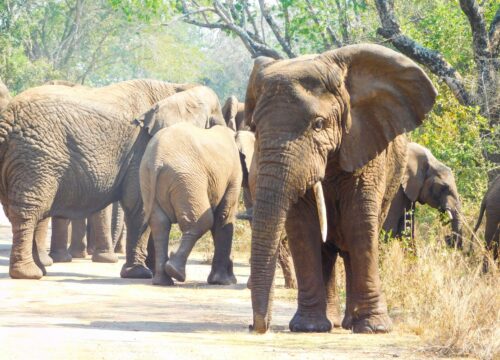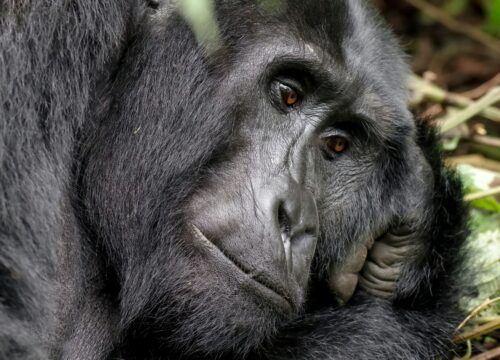Posted On :
Explore the Wonders of Kenya
Kenya stands as the premier safari destination globally for a myriad of reasons – its breathtaking landscapes, the opportunity to witness the entire spectrum of African wildlife, and the ease of encountering the renowned ‘Big 5.’ Renowned as the ultimate adventure travel destination in Africa, Kenya offers impeccable service, picturesque scenes reminiscent of ‘Out of Africa,’ a rich tapestry of cultures, and abundant wildlife.
While safaris are undoubtedly a draw, Kenya’s allure extends beyond, captivating visitors with its pristine coastline and tropical beaches, ranking among the world’s most beautiful.
Country Snapshot:
- Name: The Republic of Kenya
- Time Zone: GMT + 3
- Capital City: Nairobi, meaning “place of cool waters” in the Maa language
- Independence Gained: 12 December 1963 (from Great Britain)
- National Language: Kiswahili
- Official Language: English
- Currency: Kenyan Shilling (KES) and cents
- Land Area: Approximately 586,600 km sq
- Drives on the: Left
- Country Code: +254
Location:
Situated on the Equator along the eastern coast of Africa, Kenya shares borders with Tanzania to the south, Uganda to the west, Somalia, and the Indian Ocean to the east, as well as Ethiopia to the north and Sudan to the northwest.
Population & Culture:
With an estimated population of 43.5 million as of 2013, Kenya is home to about 52 distinct tribes.
Natural Marvels:
Kenya boasts natural wonders like the renowned Masai Mara game reserve, Mount Kenya, and Lake Victoria, the world’s second-largest freshwater lake. The Great Rift Valley, with its lakes and extinct volcanoes, adds a fascinating touch to the country’s diverse physical features.
Vegetation & Ecology:
Kenya’s natural vegetation is a true marvel, encompassing tropical rainforests, sandy beaches, snow-capped mountains, deserts, vast savannah plains teeming with wildlife, freshwater lakes, and salt lakes.
Travel Essentials:
Ensure a hassle-free visit to Kenya by having a valid passport. Excitingly, Kenya has introduced an Electronic Travel Authorization system, allowing tourists to enter without a visa. This can be easily obtained through a straightforward online process. For more details, check the official government website here.
Banking and Currency:
The Kenyan Shilling (KES) is the official currency, and foreign currency exchange is available at major banks, bureaux de change, or authorized hotels. Credit cards, especially Master Card and Visa, are widely accepted in major establishments, while ATMs are increasingly accessible.
Getting Around:
Nairobi boasts two airports – Jomo Kenyatta International Airport and Wilson Airport, catering to domestic and regional flights. With over 150 domestic airports and airstrips, daily flights make popular destinations easily reachable. Kenya Airways, Air Kenya, Fly 540, Mombasa Air Safari, and Safarilink are key players in the aviation scene.
Health and Safety:
Travelers are urged to acquire comprehensive travel insurance, with the Flying Doctors’ Service highly recommended. Kenya is generally a healthy destination, and while no mandatory inoculations are required, malaria protection is crucial. Medical facilities are reliable, and good hospitals are accessible.
Security Tips:
While Kenyans are known for their friendliness, caution is advised against theft. Safeguard valuables, avoid displaying expensive items, and use provided security measures. Hotels and lodges typically offer secure storage options.
Culinary Delights:
Tap water should be avoided, and bottled water is readily available. Communicate any dietary preferences or allergies in advance for a customized experience.
Climate and Attire:
Kenya experiences equatorial to tropical climates, with average temperatures around 22°C. Attire suggestions vary by region and season – lightweight fabrics for Nairobi and the coast, while safari trips call for loose-fitting, neutral-toned clothing.
Connectivity and Electricity:
Wi-Fi is prevalent in major cities and hotels, including luxury lodges. Electricity operates on a 220-240 AC voltage, with most safari vehicles supporting a 12-volt system. Adapters for square-pin, English standard plugs are recommended.
General Guidelines:
Communication channels are well-established between camps, lodges, and Nairobi. Photography etiquette, environmental conservation, and cultural respect are emphasized. Safaris encourage responsible tourism, with guidelines on game drives and protecting the environment.
Tipping Culture:
Tipping is customary but not obligatory. Recommendations for lodge staff, local guides, and drivers are provided, and establishments usually have tip boxes for equitable distribution.
Embark on a journey to Kenya, where adventure, cultural richness, and breathtaking landscapes await. Shishifootsteps is here to make your experience seamless, ensuring your exploration of this remarkable destination is nothing short of extraordinary.
Categories :
Tags :




Leave a Reply